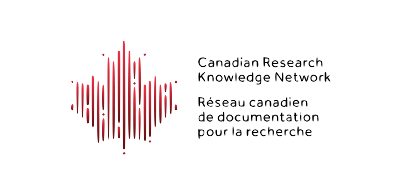“Decolonizing Canadiana Metadata: An Overdue Step in Removing Harmful Subject Headings”
From the Canadian Research Knowledge Network (CRKN) Blog Post:
When CRKN became the stewards of the Canadiana collections in 2018, our first promise to the community was to remove the paywall to the 60 million pages of digitized documentary heritage found in the collections, ensuring access to all. Our second promise, one that is long overdue and represents a small yet significant step in the work ahead, was to decolonize the metadata of Canadiana. The Canadiana collections contain content created over five centuries that tell an incomplete, oftentimes distorted, and sometimes harmful, story of Canada. The content, metadata, and resource descriptions in the Canadiana collections contain language that reflects the biases, norms, and perspectives of the time in which they were created. With the guidance of CRKN’s Preservation and Access Committee (PAC), CRKN staff are replacing inappropriate language in the metadata and resource descriptions introduced during legacy cataloguing practices. The first phase of this critical three-phase project is now complete.
[Clip]
Phase II of decolonizing Canadiana metadata is underway and includes removing the term “Indian” from subject headings indicating individual communities and updating Indigenous names and terminology using guidance from Indigenous communities and pre-existing work from GLAM (galleries, libraries, archives, and museums) organizations. As with the Phase I changes, these changes will be incorporated into Canadiana MARC records, and institutions that ingest these MARC records will find the new subject headings in the 650 field with indicator.
CRKN is providing a spreadsheet outlining interim subject headings developed as a stop-gap measure while a national vocabulary is being established. The goal of this spreadsheet is to provide greater transparency to our work and to aid cataloguers pursuing decolonization and equity, diversity, and inclusion (EDI) initiatives at their own institutions. This spreadsheet is a living document and should not be considered exhaustive or definitive. It will be updated as language changes, or as an updated national vocabulary is created. We encourage input and feedback on this document.
Learn More, Read the Complete Blog Post
Filed under: Archives and Special Collections, Associations and Organizations, Libraries, News, Preservation
About Gary Price
Gary Price (gprice@gmail.com) is a librarian, writer, consultant, and frequent conference speaker based in the Washington D.C. metro area. He earned his MLIS degree from Wayne State University in Detroit. Price has won several awards including the SLA Innovations in Technology Award and Alumnus of the Year from the Wayne St. University Library and Information Science Program. From 2006-2009 he was Director of Online Information Services at Ask.com.



